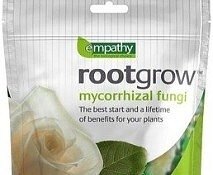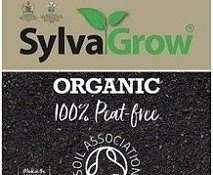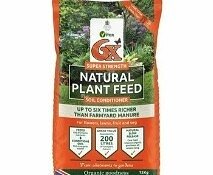
Nature’s hidden heroes – exploring the remarkable benefits of soil microbes
5 Minute Read
Find out how the world of soil microbes holds the key to a myriad of benefits that together weave an intricate tapestry and pave the way for a resilient crop. In this article, written by Fargro's Technical Manager, Jack Haslam, we explore the remarkable benefits of soil microbes and their impact on the overall health of our soil.The benefits of soil microbes to gardeners
Have you ever thought about the amazing hidden world below your garden? Beneath every blade of grass, each seedling located just a few inches under the soil surface, are tiny organisms working hard to help keep the natural biomass alive.These invisible heroes are microorganisms – bacteria, fungi, protozoa and algae – all have different roles in sustaining life on our planet. From soil fertility and structure to plant growth, these microbes work together as one powerful "soil food web" we depend on in our gardens.
In this article, written by Fargro's Technical Specialist, Jack Haslam, we explore the remarkable benefits of soil microbes and their impact on the overall health of our soil.
Cultivating a robust and healthy soil microbiome harnesses an array of beneficial microbes to elevate the quality, vitality and resilience of a home gardener's plants. It also means you don't have to use as much fertiliser, paving the way for a more sustainable and eco-friendly practices.
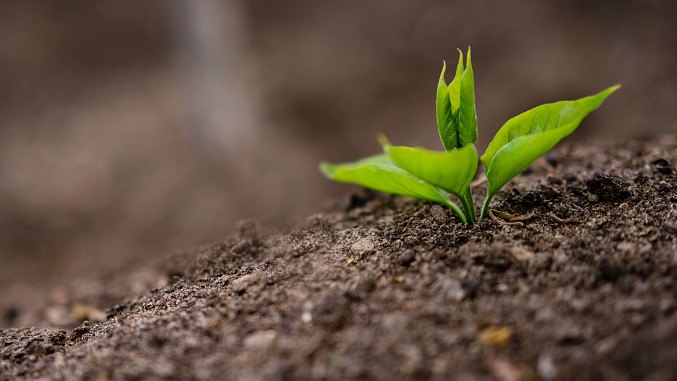
Enhanced nutrient availability:
Microbes break down, or ‘mineralise’ complex organic matter, such as dead plant materials and organic fertilisers, into essential nutrients that plant roots can readily absorb. Microbial activity and plant metabolism are both regulated by temperature – meaning that a steady and balanced supply of nutrients are supplied at a rate that matches the plant’s needs.
Microbes break down, or ‘mineralise’ complex organic matter, such as dead plant materials and organic fertilisers, into essential nutrients that plant roots can readily absorb. Microbial activity and plant metabolism are both regulated by temperature – meaning that a steady and balanced supply of nutrients are supplied at a rate that matches the plant’s needs.
Improved soil structure:
The presence of microbes improves soil's physical structure. Fungal threads, called mycelium, act like an extended "root system". The branches of these mycelium, called hyphae, bind soil particles together. This improves soil aeration, water retention, and drainage. As a result, the soil is a more favourable environment for root growth and less likely to become waterlogged.
The presence of microbes improves soil's physical structure. Fungal threads, called mycelium, act like an extended "root system". The branches of these mycelium, called hyphae, bind soil particles together. This improves soil aeration, water retention, and drainage. As a result, the soil is a more favourable environment for root growth and less likely to become waterlogged.
Disease suppression:
A healthy microbial community in acts as the first line of defence against plant diseases. Certain beneficial bacteria and fungi form symbiotic relationships with plants, helping to suppress harmful pathogens. This is done either by physically shielding the roots to exclude pathogens, stimulating the plant's natural pathogen resistance, or by directly attacking the pathogens. A general rule is that the more diverse the microbiome, the lower the risk of pathogen attacks.
A healthy microbial community in acts as the first line of defence against plant diseases. Certain beneficial bacteria and fungi form symbiotic relationships with plants, helping to suppress harmful pathogens. This is done either by physically shielding the roots to exclude pathogens, stimulating the plant's natural pathogen resistance, or by directly attacking the pathogens. A general rule is that the more diverse the microbiome, the lower the risk of pathogen attacks.
Environmental Stress Tolerance:
Microbes play an essential role in environmental stress tolerance, such as extreme temperatures, drought, and salinity. Some microbes produce stress-resistance compounds, while others trigger the plant’s natural stress tolerance mechanisms, making plants more adept at handling adverse conditions.
Microbes play an essential role in environmental stress tolerance, such as extreme temperatures, drought, and salinity. Some microbes produce stress-resistance compounds, while others trigger the plant’s natural stress tolerance mechanisms, making plants more adept at handling adverse conditions.
Nutrient Recycling:
Microbes contribute to a sustainable gardening practice by recycling nutrients within the soil. Dead plant matter and peat-free ingredients such as coir, bark and wood fibres are broken down by microbes to release nutrients into the soil for the plant use. This recycling process reduces the amount of fertiliser required and minimises nutrient runoff.
Microbes contribute to a sustainable gardening practice by recycling nutrients within the soil. Dead plant matter and peat-free ingredients such as coir, bark and wood fibres are broken down by microbes to release nutrients into the soil for the plant use. This recycling process reduces the amount of fertiliser required and minimises nutrient runoff.
Root growth and development:
Fungi, such as mycorrhiza and trichoderma, form a relationship with plant roots, stimulating their growth and extending their reach into the soil. This partnership results in a larger root surface area, enabling plants to absorb more water and nutrients. Some root-dwelling bacteria will also trigger the production of plant growth hormones, further stimulating root development.
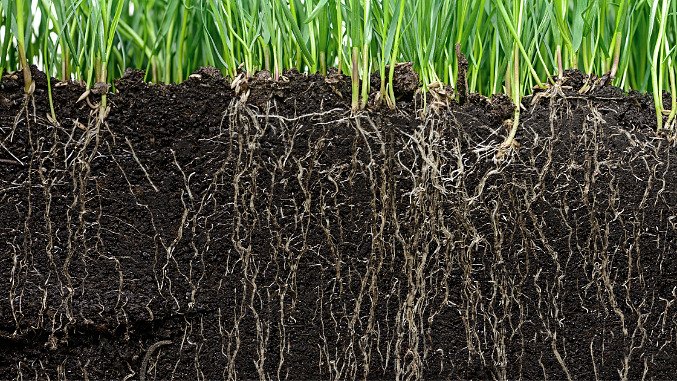
How to improve soil biology
To improve your soil microbiome, you have to create the conditions for beneficial microbes to flourish. While many composts contain nutrients, they are unconditioned for microbes to help them along once those nutrients run out, and so the introduction of products that contain these microbes will ensure you get the benefits.
Create a good environment for soil life:
• Compost selection: Select a mix that has good physical properties to deliver oxygen to the root zone and contains a good amount of organic matter to feed the microbes – something that is easier in peat-free mixes than peat-based ones.
• Avoid overwatering: Overwatering leads to waterlogged soil, creating an anaerobic environment unsuitable for beneficial microbes.
• Use organic fertilisers: Organic fertilisers release nutrients slowly in the form required to support microbial activity, before they are mineralised for plant uptake.
• Avoid overwatering: Overwatering leads to waterlogged soil, creating an anaerobic environment unsuitable for beneficial microbes.
• Use organic fertilisers: Organic fertilisers release nutrients slowly in the form required to support microbial activity, before they are mineralised for plant uptake.
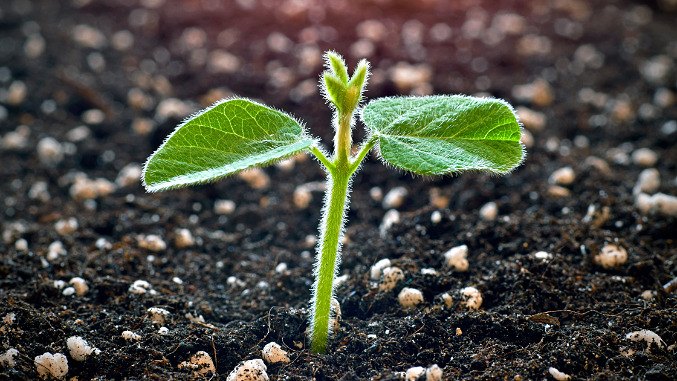
Introduce soil life to the environment:
Handy key to soil microbe types and their benefits:
Bacteria
• Rhizobia – Fix nitrogen in legume roots through symbiotic relationship, providing usable nitrogen
• Azotobacter – Fix atmospheric nitrogen and make it available for plants
• Pseudomonas – Break down organic matter and mineralises nutrients like nitrogen, phosphorus and potassium for plant use
• Bacillus – Solubilise phosphorous and potassium, making them fore available for plant uptake
• Actinomycetes – Break down organic matter and recycle nutrients
• Azotobacter – Fix atmospheric nitrogen and make it available for plants
• Pseudomonas – Break down organic matter and mineralises nutrients like nitrogen, phosphorus and potassium for plant use
• Bacillus – Solubilise phosphorous and potassium, making them fore available for plant uptake
• Actinomycetes – Break down organic matter and recycle nutrients
Fungi
Mycorrhizae form symbiotic associations with plant roots, increasing nutrient and water uptake. Types include:
• Arbuscular mycorrhizae (AM) – most widespread, increase phosphorous intake
• Ectomycorrhizae (EM) – found in woody plants and trees, increase nitrogen, phosphorous and water uptake
• Trichoderma – Parasitise pathogenic fungal species, protecting plants from diseases.
• Arbuscular mycorrhizae (AM) – most widespread, increase phosphorous intake
• Ectomycorrhizae (EM) – found in woody plants and trees, increase nitrogen, phosphorous and water uptake
• Trichoderma – Parasitise pathogenic fungal species, protecting plants from diseases.
Protozoa
The main upside of protozoa is that they feed bacteria, helping cycle nutrients from bacterial biomass into forms available to plants.
Algae
A type of rudimentary organism rather than a plant, algae aerate the soil.
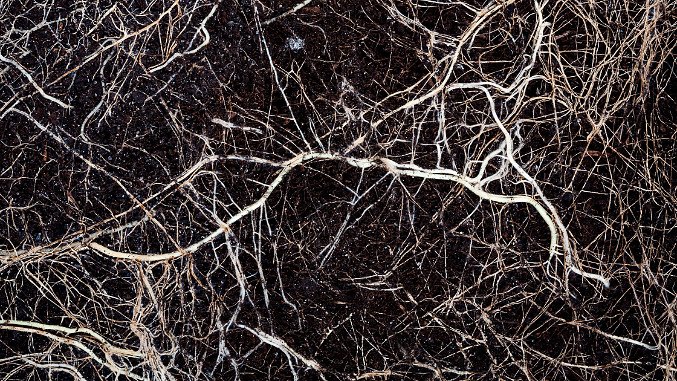
Related products
Tags: Compost | Advice & Inspiration | Fargro Home & Garden, Mycorrhizal fungi, Soil health
Comments (0)
Why not be the first to send us your thoughts?

